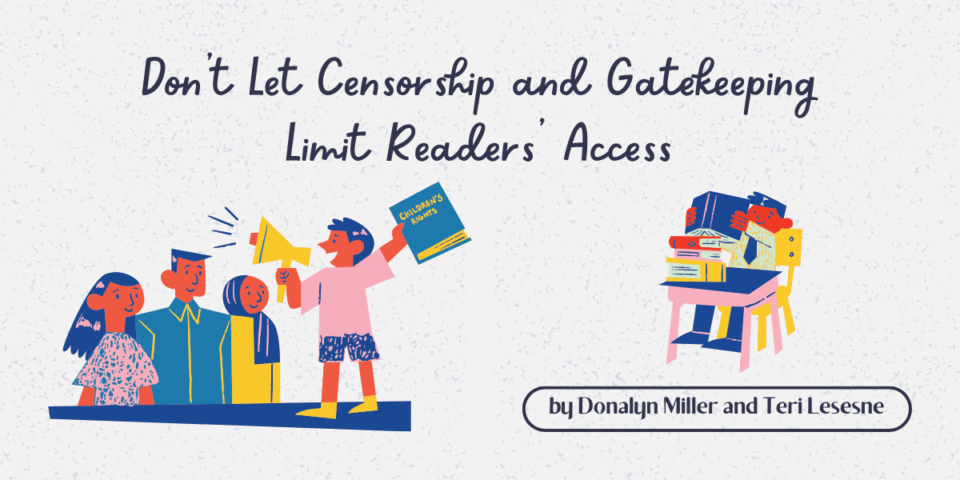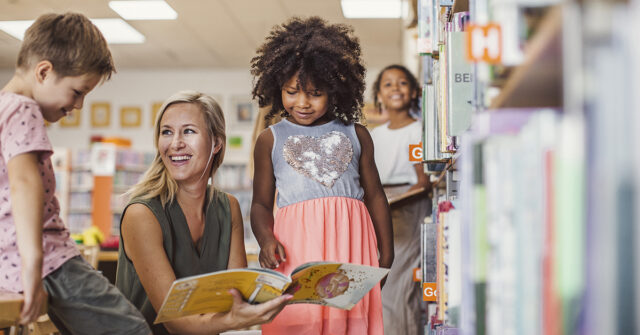
The following is an adapted excerpt from The Joy of Reading by Donalyn Miller and Teri Lesesne.
Censorship—whether through omission (preemptive exclusion of particular texts) or restriction (limiting students’ access to texts)—often creates subversive barriers to children’s book access. As educators and librarians, our professional organizations offer guidance and support in the fight against censorship. The American Library Association’s Library Bill of Rights takes the position that libraries should “challenge censorship in the fulfillment of their responsibility to provide information and enlightenment” (2019). The National Council of Teachers of English’s Standing Committee Against Censorship aims to support educators who are fighting censorship.
While many of us may think of censorship in terms of notable banned and challenged books ranging from Toni Morrison’s Beloved to The Handmaid’s Tale, by Margaret Atwood, to The Hate U Give, by Angie Thomas, censorship can also take the form of gatekeeping: excluding a book from a collection for fear it might be seen as controversial. While censorship can spark arguments and make headlines, gatekeeping is insidious, largely invisible. A teacher or librarian may never need to discuss why they’ve chosen not to include a title, and the young readers they serve—young readers who may largely rely on them for access to books—may never know what they are missing. Teri recalls interviewing young adult author Barry Lyga about his book Boy Toy during a panel discussion on censorship. Teri had assumed that because the book had been censored, Lyga must have heard multiple objections to his book.
However, he explained that was not the case: there were no fiery arguments about the book. Instead, Boy Toy—which received a starred review from Publishers Weekly—was simply not purchased or added to shelves (Publishers Weekly 2007). The adults who made purchasing decisions did not want to add this story of a teenage boy who had been sexually abused to their collections. After author Kate Messner found an invitation to speak about her book The Seventh Wish rescinded because of concerns about the book’s portrayal of drug abuse, she summed up the damage that gatekeeping can do:
[The students] won’t hear Charlie’s hopeful story, even though I know there would be kids in the room who could use that hope. There are kids like that in every class I visit. Stories about families like theirs let them know they’re not alone. (2016)
True access gives young readers unfettered intellectual, social, and cultural access to the stories, information, and ideas they need and want to read. Without free choice to read what you want, the number of books on library shelves doesn’t matter. Without meaningful access to a variety of texts, offers to “choose what you want” don’t matter much, either.



